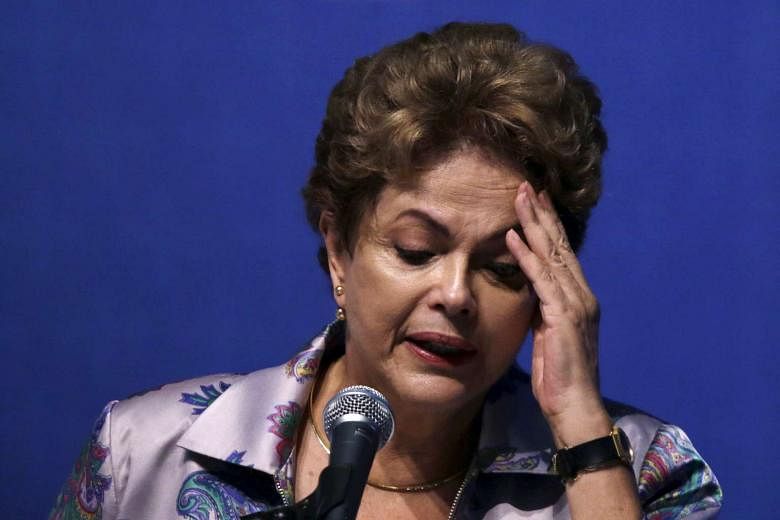BRASILIA, Brazil (AFP) - The lawyer who initiated Brazil's last impeachment of a president, in 1992, on Sunday attacked what he said was the politicised and unfair push to impeach President Dilma Rousseff today (Dec 6).
Marcello Lavenere, now 77, was an attorney and president of the Brazilian Bar Association when he co-authored a petition for impeachment of then-president Fernando Collor de Mello on grounds that Collor benefited from an influence peddling scheme.
The corruption charges were serious enough for Congress' lower house and Senate to vote overwhelmingly for Collor's ouster, even if he tried to scupper the impeachment trial by resigning.
Now Rousseff, less than a year into her second term, faces impeachment proceedings based on a petition filed by lawyers claiming that she broke fiscal laws when her government used accounting tricks to mask gaps in the government's budget.
A committee will start forming Monday in the lower house of Congress before hearing Rousseff's defense, then ruling on whether the case should go to the full house for a vote.
Rousseff defends herself saying that her government was using fiscal maneuvers that, while not strictly proper, had been used regularly by previous governments and do not amount to corruption.
Experts are divided on whether she can ride out the crisis, which comes as Brazil sinks into deep recession and a huge, unrelated corruption scandal centered on state oil giant Petrobras that has sucked in leading politicians and business figures - although not Rousseff.
Lavenere told Folha newspaper in an interview Sunday that the charges are lightweight compared to Collor's case and that the assault on the leftist president has been politicised from the start.
"Dilma has the right to say that this was not a crisis caused by irregular behavior on her behalf," he said.
Lavenere said that in contrast, back in 1992, "the president of the republic himself was the one accused of committing illegal acts." He also said that Collor was given ample opportunities to clear himself before the accusations were transformed into an impeachment procedure, whereas today "a position has been taken against Dilma before any judgement." "Impeachment is not for political fights," he said.
"What did she do? Did she rob? Did she take a bribe? Did she receive illicit gains? Did she violate the decorum of her post? Did she commit any of the illicit acts contained in the constitution and the law of impeachment? No."
Brazil's lower house would have to vote by more than two-thirds in favor of impeachment. The Senate would then convene a trial, with a two-thirds margin also required there before the president was stripped of her post.

